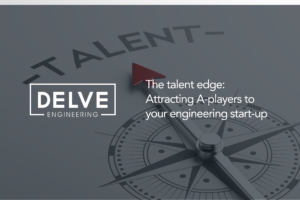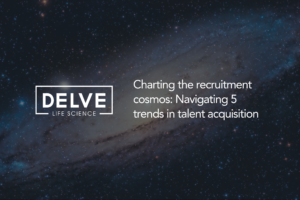

Here are our top 5 challenges faced by semiconductor candidates when searching for career progression opportunities…
1. What is the role?
As a senior recruiter in the semiconductor industry, I know first-hand just how little even a well-written job description represents the role. A key battle for me at the beginning of a search is to engage with hiring managers, HR, and team members to fully understand what the role is, what it means to the business and why it’s even there in the first place; day-to-day and long-term.
2. What’s the culture of the business?
Impossible to know unless you already know people in the business. The semiconductor industry is a small world but it’s still rare that a candidate will have a clear view. Most recruiting processes fail because of cultural mismatches – pre AND post hire. That is why we always get to know the people in the business before launching a search and the foundations of our Delve screening and interviews are built on cultural-fit, matching motivations and aligning on aspirations.
3. What are the businesses expectations, goals and projections?
I’m yet to work with a business that publishes their internal strategies, investments, growth plans etc on a job description and it makes perfect sense. Trust is a key pillar of our values at Delve, this means clients will share valuable insights about their business for us to relay to candidates who we believe could be a great fit. Candidates who will buy in to their goals and ultimately, have a positive impact on them.
4. Why would I leave when the going is so good?
I rarely come across candidates who are unhappy with their current employer or assignment. We work in a fascinating industry with ongoing innovation, exciting problems to solve and end products which have a beneficial impact on our societies and environment. The ‘going’ is often very good and even more so now, than ever. What I will say is that under these circumstances, businesses must adapt and be more flexible in their recruitment because far fewer candidates are actively looking. This means, the going has also never been as good when it comes to landing an opportunity that you may not have been accepted for in the past.
5. What if I feel bad about moving on or burn bridges?
I always empathise with candidates here. Signing an offer with a new business can be hard and we should never overlook any emotional or sentimental associations with your current employer. Often, they will have played a very important part in a candidate’s career and created a great place to grow. I personally believe it’s right to feel some sadness when making a change rather than being happy to get out.
I recently placed a candidate who had spent eight years with a leading semiconductor IDM and had similar concerns. The candidate eventually took the opportunity, is very happy, and I met them for the first time face-to-face at an exhibition – alongside his ex-employers stand. My point being, if you’ve worked hard, given your notice and continue to work hard until the end of that period – you won’t burn bridges. Plus, it’s highly likely your superiors or colleagues have or will have been through the same experience as you – empathy full circle.
Written by Nathan Falconer, Senior Search Consultant at Delve Search GmbH, Munich.





